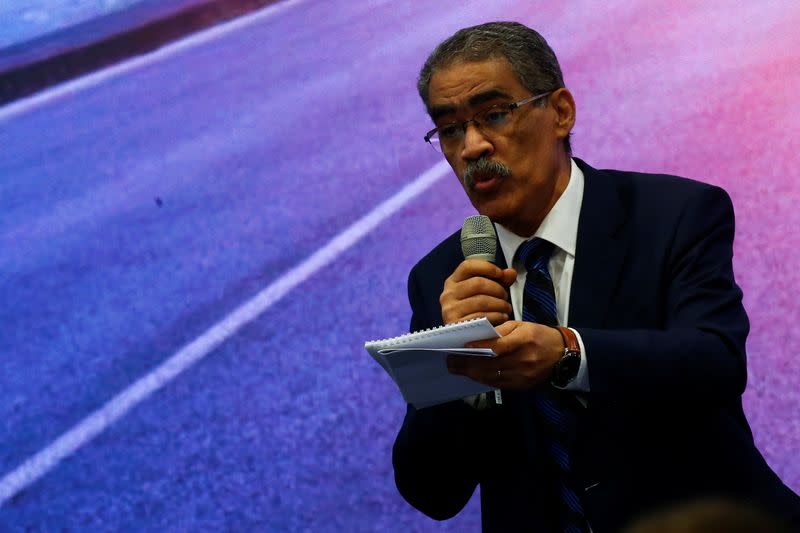Egypt says it may withdraw as Gaza ceasefire mediator

CAIRO (Reuters) - Egypt threatened on Wednesday to withdraw as a mediator in Gaza ceasefire negotiations after CNN reported that Egyptian intelligence changed terms of recent truce proposal and scuttled a deal.
"Attempts to cast doubt and offend Egypt's mediation efforts... will only lead to further complications of the situation in Gaza and the entire region and may push Egypt to completely withdraw from its mediation in the current conflict," Diaa Rashwan, head of Egypt's State Information Service, said in a statement published on social media.
Quoting three people familiar with the discussions, CNN on Tuesday said Egyptian intelligence changed terms of a ceasefire proposal that Israel agreed to earlier in May.
When Hamas announced on May 6 that it accepted the agreement, it was not the proposal that fellow mediators from the U.S. and Qatar thought was submitted to Hamas for review, according to CNN.
The changes made by Egyptian intelligence caused anger and recrimination among U.S., Israeli and Qatari officials and caused an impasse in the talks, the CNN report said.
The CIA, whose director, William Burns, has been leading the U.S. mediation efforts, declined to comment on the report.
Rashwan said in the statement that Cairo's participation as a mediator resulted from "repeated requests and insistence" from Israel and the U.S.
Egypt said some "parties" recently directed blame towards Egyptian and Qatari mediators and accused them of being biased, he added.
Tensions have been growing between Egypt and Israel over the Israeli military operation in Rafah at the southern end of the Gaza Strip, just across the border from Egypt.
Since the war between Israel and Hamas began on Oct. 7, Egypt has expressed concern that Israel's campaign could push residents of the Palestinian enclave across its border, where it has bolstered security.
(Reporting by Jaidaa Taha and Yomna Ehab; Editing by Cynthia Osterman)

